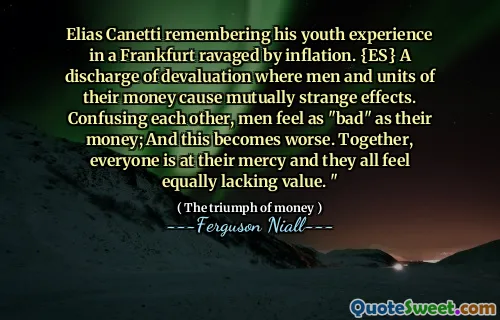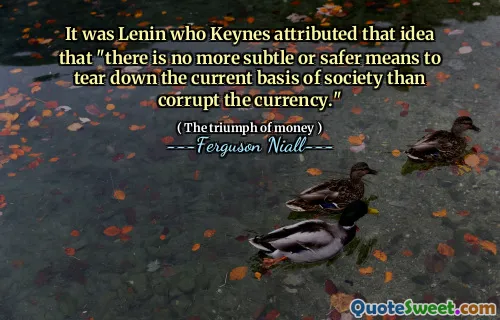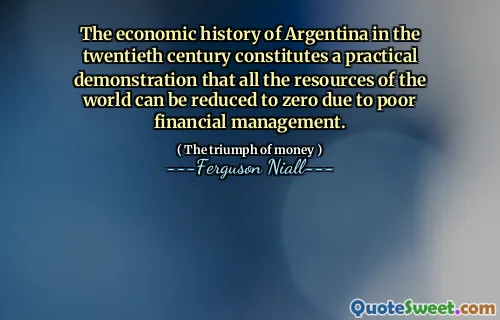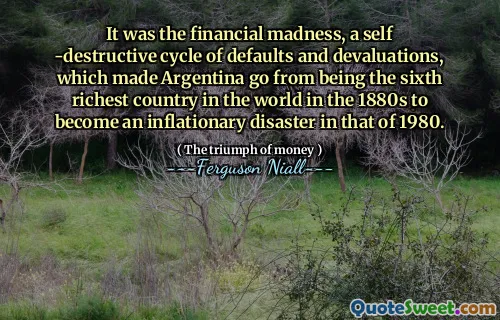
Elias Canetti remembering his youth experience in a Frankfurt ravaged by inflation. {ES} A discharge of devaluation where men and units of their money cause mutually strange effects. Confusing each other, men feel as "bad" as their money; And this becomes worse. Together, everyone is at their mercy and they all feel equally lacking value. "
Elias Canetti reflects on his experiences growing up in Frankfurt during a time of severe inflation, highlighting the profound psychological impact it had on society. As currency lost its value, individuals began to internalize this devaluation, leading to a collective sense of worthlessness and confusion. The relationships between people became strained, mirroring the instability of their financial situations.
This shared experience of devaluation fostered a sense of helplessness among the population. Canetti's observations reveal how economic turmoil can strip people of their dignity, making them feel diminished alongside their money. In this troubling environment, the connection between personal worth and monetary value becomes painfully clear, as everyone grapples with the implications of their circumstances.











